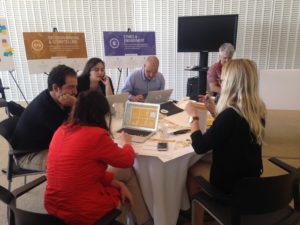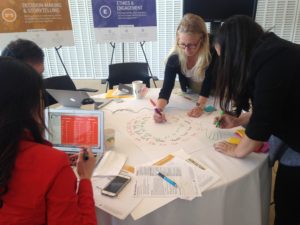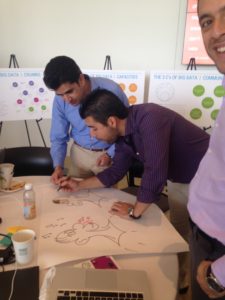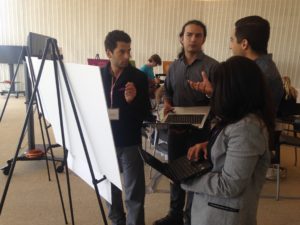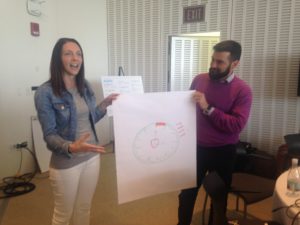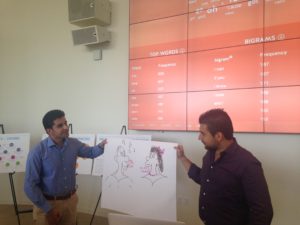We conducted a workshop as part of the Data-Pop Alliance’s Global Professional Training Program on Big Data and Development at the MIT Media Lab. Data-Pop’s program focuses on building capacity for working with data for global professionals who are involved in development work and policymaking. You can read more about their approach here. In attendance were around 30 folks from universities, the civil sector, and government from a variety of countries, including Colombia, Senegal, France and the US.
Our workshop was titled Big, small, and popular data: engaging communities with data. First, we did a group critique of an infographic about global food production. This followed the structure of DataTherapy’s Activity: Critique a Gallery of Visualizations where we explored the story’s message, the audience and the visual techniques they used to tell a data-driven story. We then showed a basic process for working with data and gave some examples of how you can build in stakeholder participation at every stage of the process. The GoBoston2030 public engagement process run by the City of Boston for their transportation master planning process is a great example of this in government. They did community data analysis and interpretation events in order to make meaning out of thousands of qualitative data stories that they collected from citizens.
Finally, we presented the basic design goals of Databasic and participants worked in groups to tell a story from quantitative text data using WordCounter and to ask questions of a spreadsheet using WTFcsv. Groups came up with compelling ways to tell stories about their data in less than ten minutes. We had circle diagrams, sophisticated Simpsons’ cartooning and compelling concepts. We followed the workshop with Q & A about how to take simple, participatory methods back to their contexts.
